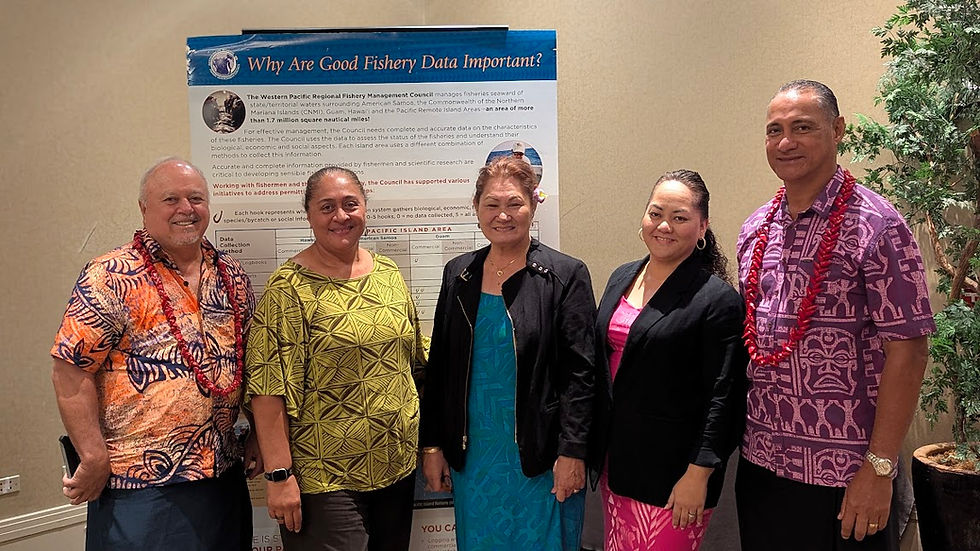Building Local Capacity for Ocean Stewardship in American Samoa
- Nathan Ilaoa
- Dec 18, 2024
- 2 min read

Fisheries have played a central role in American Samoan culture and society since long before Western contact. The islands’ history and way of life, fa’a Samoa, are inextricably linked to the ocean. However, the role of fishing in the territory has undergone dramatic changes over the past 50 years, driven by population growth and a shift from a subsistence economy to a cash-based economy heavily reliant on the tuna industry. The tuna canneries, established in 1954, have become the main driver of American Samoa's economy. They are the largest private-sector employers, employing thousands of workers and generating substantial revenue through taxes and fees. The canneries' presence also supports a network of businesses providing goods and services. The dependence on the tuna industry highlights a critical issue facing American Samoa: the lack of local capacity in fisheries and other marine and ocean careers.
While the canneries are a major economic force, most cannery workers are not American Samoan citizens but come from neighboring countries like Samoa and Tonga. This means a significant portion of the income generated by the tuna industry flows out of the territory. Moreover, the focus on cannery work has led to a decline in local participation in small-scale and subsistence fishing, eroding traditional knowledge and practices.
Developing a skilled local workforce in fisheries and marine-related fields is crucial for several reasons:
Economic Sustainability: Building local capacity in the tuna industry and other ocean-related sectors reduces American Samoa's dependence on external labor and ensures that the benefits of its marine resources are retained within the territory.
Food Security: As a small island nation, American Samoa relies heavily on imported food. Cultivating expertise in sustainable fishing practices and marine resource management can enhance local food production and reduce reliance on imports, strengthening food security for future generations.
Environmental Stewardship: Empowering local communities to manage their marine resources fosters a sense of responsibility and encourages sustainable practices. A new generation of ocean stewards equipped with the knowledge and skills to manage these resources is essential for the long-term health of American Samoa’s marine ecosystems.
Cultural Preservation: Fishing is an integral part of American Samoa's cultural heritage. By encouraging young people to engage in fisheries and marine-related careers, LVP seeks to revitalize traditional knowledge and practices, ensuring that this cultural legacy is passed on to future generations.
Le Vasa Pathways is committed to addressing this need by inspiring youth, educating teachers, informing the community, and empowering professionals to engage in responsible fisheries and ocean resource management. The organization's work is vital to building a sustainable future for American Samoa, one where its people are equipped to steward their marine resources and ensure a thriving ocean economy for generations to come.
.png)



Comments